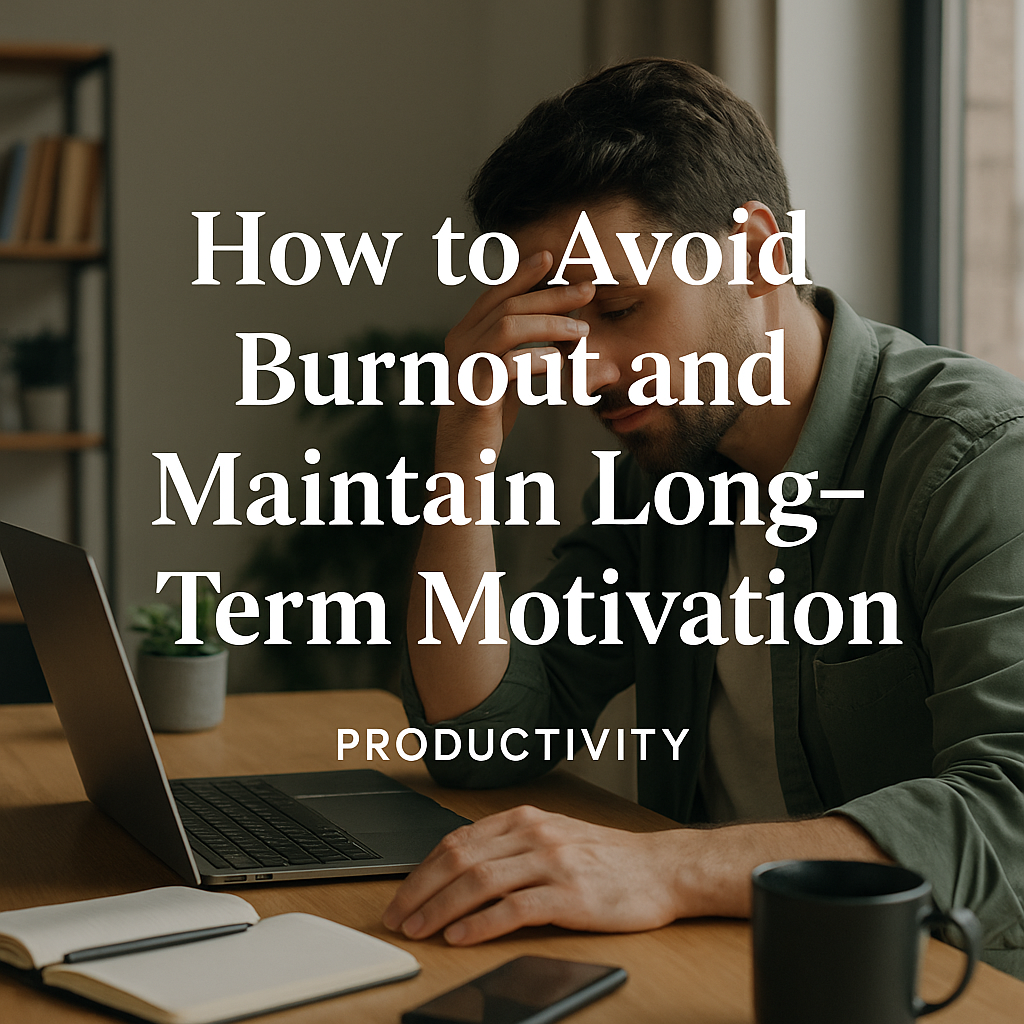Burnout doesn’t happen overnight. It builds slowly—through chronic stress, overcommitment, and a lack of recovery. And when it hits, even things you once loved feel exhausting.
Staying motivated isn’t about pushing harder. It’s about working sustainably, protecting your energy, and fueling yourself for the long haul.
In this article, you’ll learn how to recognize burnout early and build systems that support lasting motivation and well-being.
What Is Burnout?
Burnout is a state of physical, emotional, and mental exhaustion caused by prolonged stress. It’s often linked to:
- Overworking without enough rest
- Lack of control over your workload
- Emotional strain (especially in caregiving or high-pressure roles)
- Feeling unappreciated or unsupported
- Being constantly “on” without boundaries
Symptoms include fatigue, irritability, low motivation, brain fog, and a sense of hopelessness.
1. Spot the Warning Signs Early
The earlier you recognize burnout, the easier it is to reverse. Look out for:
- Frequent exhaustion—even after sleep
- Dreading work or daily responsibilities
- Reduced creativity and focus
- Feeling detached, cynical, or emotionally numb
- Physical symptoms like headaches, insomnia, or digestive issues
Don’t wait until you crash—respond at the first signs.
2. Redefine What Productivity Means
Chronic overwork often stems from the belief that more = better. But productivity is about results, not hours.
Shift your mindset:
- Focus on high-impact tasks, not constant activity
- Allow for deep rest without guilt
- Use systems (like time blocking or batching) to work smarter
Rest is not a reward—it’s a requirement.
3. Build Micro-Recovery Into Your Day
You don’t need a vacation to recover. Small, consistent breaks prevent stress from compounding.
Try:
- 5-minute walks every 90 minutes
- Deep breathing between meetings
- Stretching after long screen sessions
- Stepping away from your desk for lunch
- A brief nap or meditation break
These micro-recoveries reset your nervous system and recharge your energy.
4. Protect Your Boundaries (Yes, Again)
If you constantly say “yes” to everything, burnout is inevitable.
- Set clear work hours
- Communicate availability and limits to others
- Turn off notifications after hours
- Learn to say “no” without guilt
- Unfollow or mute online content that drains your energy
Healthy boundaries preserve your capacity to show up fully.
5. Reconnect With Meaning
Burnout often feels worse when your work loses purpose. Ask yourself:
- Why did I start this journey?
- What impact do I want to have?
- What parts of my day feel aligned vs. draining?
Reconnect with meaning through:
- Reflective journaling
- Volunteering or mentoring
- Shifting your role or focus
- Celebrating small wins and progress
Motivation thrives on meaning—not pressure.
6. Take Care of Your Body
Your body fuels your mind. Without physical care, mental clarity and motivation decline.
Prioritize:
- 7–9 hours of quality sleep
- Nutrient-dense meals (especially brain foods like leafy greens, nuts, and fish)
- Regular movement (even walking counts)
- Hydration
- Limiting caffeine and screen time near bedtime
Your performance depends on how well you recover.
7. Ask for Help When Needed
You don’t have to do it all alone. Whether it’s therapy, coaching, or simply talking to a trusted friend, support reduces the burden.
- Speak openly about stress
- Delegate when possible
- Surround yourself with people who uplift—not drain—you
- Take mental health days without shame
Asking for help is a strength, not a weakness.
Final Thought: You Can’t Pour From an Empty Cup
Burnout is not a sign of failure—it’s a signal. Your body and mind are asking for rest, recalibration, and care.
Long-term motivation isn’t about hustle. It’s about building a rhythm of action and recovery. It’s about showing up sustainably, not sacrificially.
Listen to your body. Protect your energy. And remember: rest is what allows you to rise again.

